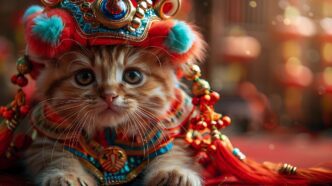Uttara Phalguni, the twelfth lunar mansion in Vedic astrology, represents the cosmic principle of patronage, compassion, and the fulfillment that comes from helping others. Spanning the zodiac from 26°40′ Leo to 10°00′ Virgo, this nakshatra is governed by the Sun and its presiding deity, Aryaman, the god of contracts, friendship, and hospitality. Individuals born under its influence are often destined for leadership roles, not through dominance, but through their innate capacity for kindness, reliability, and building strong, supportive alliances. Understanding Uttara Phalguni is essential for anyone seeking to grasp how benevolence, integrity, and social grace can pave the path to lasting prosperity and personal satisfaction.
Understanding the Essence of Uttara Phalguni
At its core, Uttara Phalguni is about the mature expression of solar power. While the Sun can represent ego and authority, here its energy is channeled into service, support, and the upholding of societal bonds. This nakshatra builds upon the social comforts of its predecessor, Purva Phalguni, but shifts the focus from personal enjoyment to collective well-being and responsibility.
The Deity: Aryaman, the God of Patronage and Contracts
The soul of Uttara Phalguni is embodied by its deity, Aryaman. As one of the twelve Adityas (solar deities), Aryaman governs the sacredness of commitments, whether in marriage, business, or friendship. He is the divine force that ensures promises are kept and hospitality is honored.
This divine influence imbues Uttara Phalguni natives with a profound sense of duty and integrity. They are naturally inclined to be reliable, trustworthy, and excellent mediators. Their word is their bond, making them pillars of their communities and families. Aryaman’s energy encourages them to form lasting relationships built on mutual respect and support.
The Symbol: The Back Legs of a Bed or Cot
The primary symbol for this nakshatra is the back two legs of a bed or cot, which connects directly to Purva Phalguni’s symbol of the front two legs. While Purva Phalguni represents the initial stages of rest, romance, and pleasure, Uttara Phalguni signifies the deeper, more stable aspects of comfort and security.
This symbolism highlights the native’s role as a foundational support system for others. They provide the stability and rest that allow others to thrive. It also points to themes of healing, recuperation, and the quiet comfort found in secure unions, particularly marriage.
The Ruling Planet: The Sun (Surya)
The Sun’s rulership over Uttara Phalguni bestows upon its natives qualities of leadership, vitality, and a strong sense of self. However, this is not the fiery, self-aggrandizing Sun of other placements. Here, the Sun’s radiance is generous and life-giving, much like its light nourishes the earth.
Natives often possess a natural authority and a regal bearing, but they lead with compassion. Their purpose (or dharma) is frequently tied to serving humanity, protecting the vulnerable, and acting as patrons for those in need. This blend of solar power and selfless service is the hallmark of a well-expressed Uttara Phalguni.
The Personality and Traits of an Uttara Phalguni Native
The character of a person with prominent planets in Uttara Phalguni is a complex tapestry woven from generosity, stability, and a deep-seated need to contribute to the world. They are the friends you call in a crisis and the leaders who champion noble causes.
Positive Attributes: Generosity, Stability, and Leadership
The most defining trait of Uttara Phalguni natives is their immense generosity. They give freely of their time, resources, and energy without expecting anything in return. This charitable nature makes them beloved figures in their social circles.
They are exceptionally stable and dependable, providing a sense of security to those around them. This reliability makes them natural leaders, often rising to positions of authority in their careers and communities. Their leadership style is benevolent, focused on mentoring and empowering their teams rather than commanding them.
Challenging Aspects: Stubbornness and a Need for Recognition
No nakshatra is without its challenges. The fixed nature of the Sun can manifest as stubbornness or an unwillingness to deviate from their principles. While their convictions are often noble, they can sometimes become rigid in their thinking.
Because they give so much of themselves, these natives can feel deeply hurt if their efforts are not appreciated or acknowledged. A subtle need for recognition drives them, and they may become resentful or withdrawn if they feel taken for granted. In the Virgo portion of the nakshatra, this can also manifest as a tendency toward being overly critical of themselves and others.
Navigating the Four Padas
To fully understand Uttara Phalguni, we must examine its four distinct quarters, or padas. Each pada is 3°20′ long and adds a unique planetary flavor from its Navamsa chart, refining the nakshatra’s expression.
Pada 1 (26°40′ – 30°00′ Leo)
Ruled by Jupiter and falling in the Sagittarius Navamsa, this pada blends the Sun’s leadership with Jupiter’s wisdom. Natives are highly ethical, philosophical, and possess a strong moral compass. They excel as advisors, counselors, and teachers, driven by a desire to impart knowledge and uphold justice.
Pada 2 (00°00′ – 3°20′ Virgo)
This pada marks the transition into the sign of Virgo and is ruled by Saturn in the Capricorn Navamsa. Here, the focus shifts to practical, organized, and disciplined service. These individuals are exceptionally hardworking and excel at management and administration. They have the ability to manifest their grand, charitable visions through meticulous planning and execution.
Pada 3 (3°20′ – 6°40′ Virgo)
Also ruled by Saturn, this pada falls in the Aquarius Navamsa, infusing the nakshatra with a humanitarian and intellectual bent. Natives are forward-thinking and committed to large-scale social causes. They combine Virgo’s detail-oriented service with Aquarius’s vision for a better future, making them excellent philanthropists and social reformers.
Pada 4 (6°40′ – 10°00′ Virgo)
Ruled by Jupiter and falling in the Pisces Navamsa, this is the most compassionate and self-sacrificing quarter. It blends Virgo’s practicality with Pisces’s universal empathy. These natives are deeply intuitive and drawn to healing and spiritual service, but they must be mindful of maintaining healthy boundaries to avoid burnout.
Career, Relationships, and Life Path
The life path of an Uttara Phalguni native is one of service, connection, and building lasting institutions. Their professional and personal lives are deeply intertwined with their core values of compassion and integrity.
Ideal Professions for Uttara Phalguni
Careers that allow these individuals to help, guide, and support others are most fulfilling. They thrive as social workers, counselors, therapists, and philanthropists. Their natural authority and organizational skills make them excellent managers, administrators, and government officials.
Given Aryaman’s domain, they also excel as marriage counselors, diplomats, and legal professionals who uphold contracts. Any role involving patronage—whether of the arts, sciences, or humanitarian causes—is perfectly suited to their nature.
Relationships and Marriage
In relationships, Uttara Phalguni natives are loyal, committed, and incredibly supportive partners. Marriage is a sacred institution for them, a reflection of Aryaman’s governance over unions. They seek stable, long-term partnerships and often become the emotional anchor of their family.
They are devoted parents and steadfast friends, always ready to offer a helping hand. Their greatest happiness in relationships comes from creating a secure and nurturing environment where their loved ones can flourish.
Cosmic Guidance and Remedies
For those with a strong Uttara Phalguni influence, certain practices can help harmonize its powerful energies and mitigate its challenges. These remedies are designed to align the individual with the nakshatra’s highest virtues.
Honoring the Deity and Planet
Regularly chanting mantras dedicated to the Sun, such as the famous Gayatri Mantra, can strengthen one’s inner vitality and leadership qualities. Honoring Aryaman can be done by consciously upholding all promises and contracts, no matter how small.
The most potent remedy is to engage in selfless service and charity. Donating time or money to a cause you believe in directly activates the benevolent power of this nakshatra. Acts of hospitality, such as inviting friends for a meal, also please Aryaman.
Lifestyle and Spiritual Practices
Cultivating a strong network of supportive friends is crucial, as it provides the reciprocal energy that these natives need. Engaging in community service or mentoring someone can be a deeply fulfilling expression of their innate talents.
Wearing colors associated with the Sun, such as gold, orange, and bright white, can help boost confidence and align one’s personal energy field with the nakshatra’s vibration. Maintaining a clean and comfortable home environment reflects the symbolism of the cot and provides a sanctuary for rest and rejuvenation.
In conclusion, Uttara Phalguni is far more than just another star in the cosmic wheel; it is a profound archetype of benevolent power. As the “Star of Patronage,” it teaches that true strength lies not in command, but in compassion. Its natives are here to build, to support, and to heal, reminding us all that the greatest legacy one can leave is a world made better by one’s kindness, integrity, and unwavering generosity.








